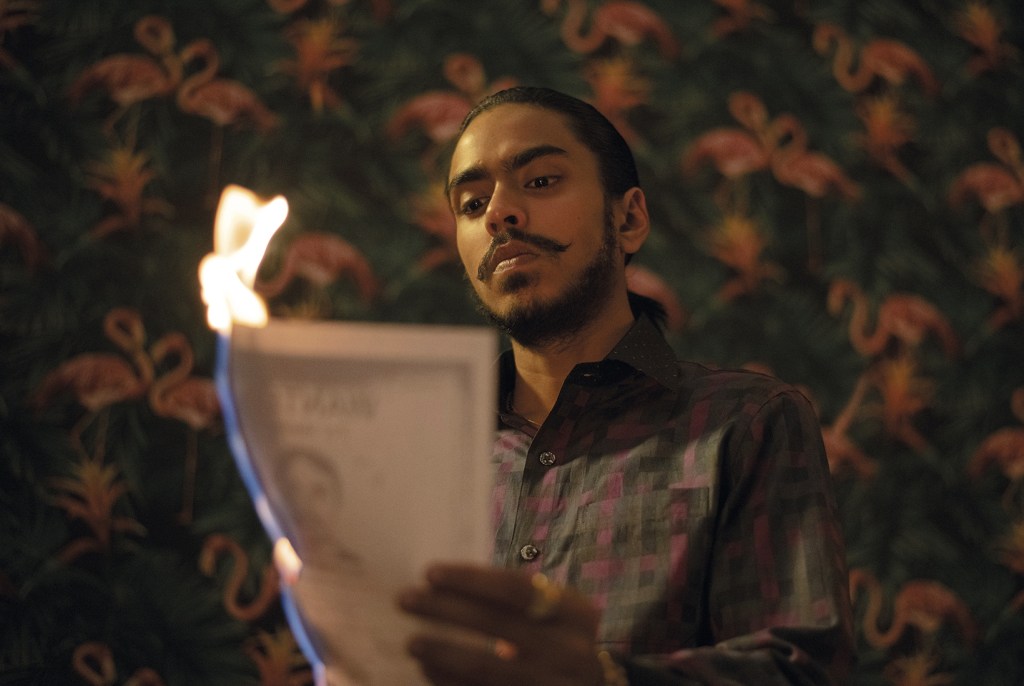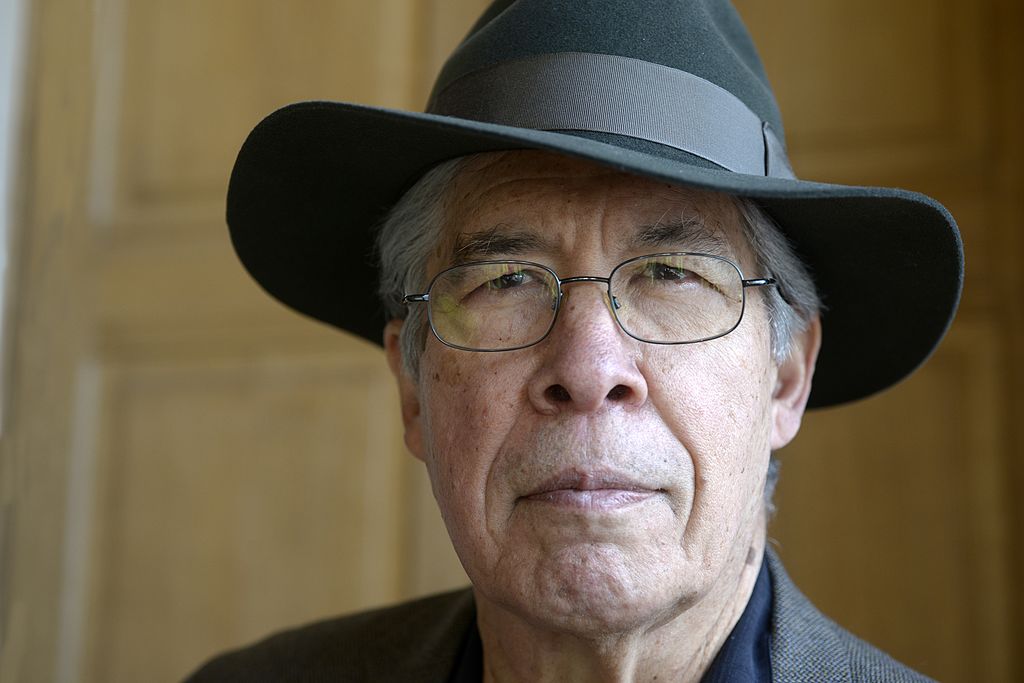The White Tiger is adapted from the Booker-prize winning novel (2008) by Aravind Adiga. It is directed by Ramin Bahrani (Man Push Cart, 99 Homes) who also wrote the screenplay. It stars Adarsh Gourav, otherwise a songwriter and singer. It’s a rags-to-riches story set in India but it’s not at all a typical rags-to-riches story set in India. Those are some of the things you probably should know, but there is only one thing I want you to know: it is wonderful and, even though the subject matter is often chilling, and there’s simmering rage, and murder, it’s still two hours of boisterous, dazzling, swaggering fun. I watched it once and thought: I could easily watch that again. So I did. Unheard of. And one last thing I want you to know: Bahrani may be a genius.
Like the novel, the film is framed by letters from Balram (Gourav) — a successful Bangalore entrepreneur and the self-styled ‘White Tiger’ of the title — to the Chinese premier, who is due to visit the country and possibly needs educating about ‘the new India’. (As Balram’s witty, pithy and ultimately psychopathic voiceover puts it: ‘I think we can agree America is so yesterday and China and India are so tomorrow.’) Balram confesses he is wanted for murder and then proceeds to recount his own life, which began in a rural village where his father was a poor rickshaw-puller who died of TB after a two-day walk to a hospital where there were no doctors. He was, he tells the Chinese leader, born into ‘the darkness’ that is poverty. He expected greater things for himself as he was exceptionally bright at school, but alas, once his father died, he was pulled from education to help support the family. He broke coals for not much of a living.
It is, I suppose, Dickensian, but with a difference: bad characters are bad not through moral defect, but through circumstance, while good characters don’t necessarily stay good. Innocence is corrupted. Balram inveigles his way into a job as a driver for Ashok (Rajkummar Rao), the son of the village’s nasty, feudal landlord. Balram is, initially, a keen and faithful servant — ingratiating even. Ashok, who had been studying in America, has an American-born wife, Pinky Madam (Priyanka Chopra Jonas), and while the rest of his family beat and abuse Balram, this pair consider themselves modern. They say they wish to treat Balram as an equal but are condescending all the same. And once they are cornered, they quickly revert to type. If you have read the novel, you will remember there is a Gatsby-esque twist in the middle. (A car. An accident.)
This is all told by Bahrani with a ferocious, propulsive energy as well as verve and imagination. Plus humor. For instance, when Balram first sets eyes on dashing Ashok in his Ray-Bans, it’s done in slow-mo, as if this were a swooning cute-meet from a romcom. So the tone is always amused even though — and herein lies his genius — it never shies away from any ugliness: the corrupt nature of politics, the corrupt nature of the police, the servant-master relationship. (‘Do we loathe our masters behind a façade of love or do we love them behind a façade of loathing?’ asks Balram at one point.) Yet this never feels issue-driven as it might have done if, for example, Ken Loach had had a go, and it does raise many interesting questions: if too little money can make you a monster and too much can make you a monster, is there ever a right amount?
As for the performances, they are uniformly brilliant, but Gourav’s especially so. He will hold you spellbound throughout — whether you are sympathizing or not. It’s an astounding star turn. You have to see it to believe it. You may even wish to see it twice.
This article was originally published in The Spectator’s UK magazine. Subscribe to the US edition here.

























